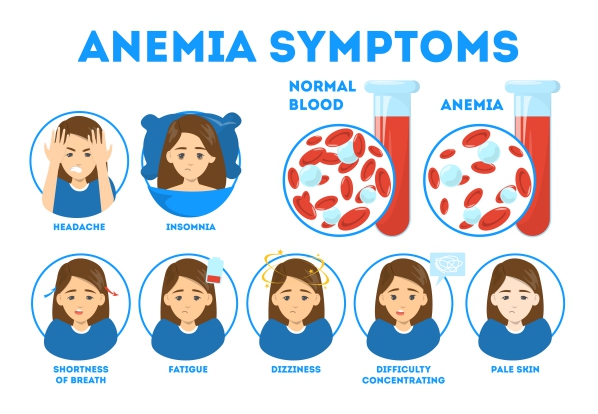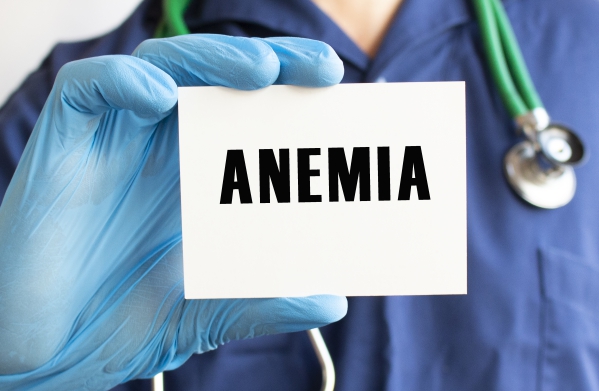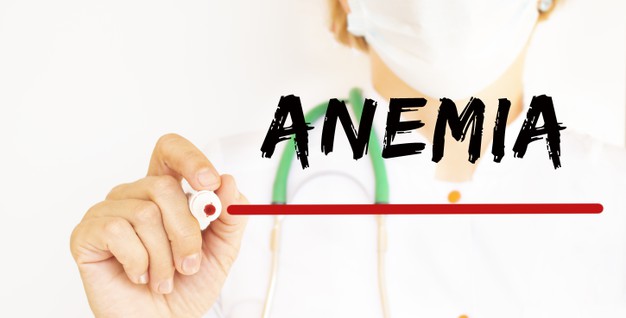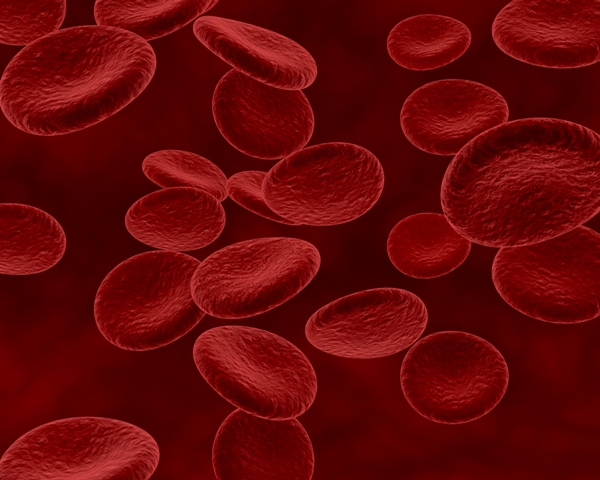What is anemia?
In your blood, there are cells called red blood cells whose function is to transport oxygen from your lung to other parts of your body. This oxygen is then utilized by all the cells in your organs and tissues to function properly. When the number of red blood cells in your blood decreases below the normal level, you are said to have anemia. This is actually measured by your level of hemoglobin which is the iron-rich component in your red blood cells that binds to oxygen from your lungs.
Sometimes, it can happen that you have a low hemoglobin but have no symptoms. On the other hand, the same amount in another patient can cause severe symptoms depending on the general condition of the individual. The symptoms occur as a result of the low amount of oxygen carried to your organs. Anemia is a common disorder that affects around more than 1.6 billion people across the world. It can be temporary or chronic and varies in its severity. However, treatments are available depending on the underlying cause of the anemia.
Causes of anemia
There are several factors that can lead to anemia. These factors can be classified into those that:
- Decrease the amount of red blood cells produced; including a low amount of the hormone erythropoietin produced by the kidney. This hormone is essential to stimulate the production of red blood cells. An insufficient intake of iron, vitamin B-12 and folate in your diet can also contribute in the development of anemia. Hypothyroidism is a condition of low functioning thyroid gland can also present with anemia.
- Increase the amount of red blood cells destroyed; endometriosis, big amount of blood loss after an accident, lesions in your gastrointestinal tract and menstruation can cause anemia. Hemolysis, problems with your liver or spleen can also contribute in the excessive destruction of your red blood cells.

There are different types of anemia that can arise based on its underlying cause namely:
- Iron deficiency anemia: This is the most common cause of anemia. Hemoglobin, found in red blood cells, is a protein comprised of iron which plays a crucial role in transporting oxygen around the body. Your bone marrow need to get enough iron to be able to make hemoglobin. If you are not taking adequate amounts of iron in your diet, you will end up being deficient in iron. This results in iron deficiency anemia. This type of anemia can also arise if you lose blood such as if you have heavy menses, bleeding ulcers or cancers.
- Vitamin deficiency anemia: There are also other important components needed to produce well-functioning red blood cells including; folate and vitamin B-12. Similar to a lack of iron in your diet, a lack of these nutrients can result in a deficiency leading to anemia.
- Haemolytic anemia: This occurs when your body is destroying red blood cells at a faster rate compared to its rate of production of the cells. There are certain diseases that can contribute to an excessive destruction of red blood cells. Infections, certain medications, toxins or autoimmune conditions can result in haemolytic anemia.
- Aplastic anemia: In this rare condition, your bone marrow itself is not able to produce enough red blood cells. This can be caused by infections or autoimmune diseases amongst others.
- Anemia of chronic inflammation: In certain cases, long standing inflammatory conditions can interfere with the production of red blood cells. These include malignant conditions, rheumatoid arthritis, inflammatory bowel diseases and kidney problems.

Risk factors for anemia
You are at increased risk of having anemia if:
- You do not consume enough iron, vitamin B-12 and folate
- You have problems in your gastrointestinal tract impairing proper absorption of the required nutrients from your intestines
- You are menstruating
- You are pregnant and not taking enough supplements
- You have other chronic diseases
- You have a close family member with anemia
- You are aged over 65 years
Signs and symptoms
Anemia is a condition which can manifest in various ways. In some people, it may even go unnoticed. The signs and symptoms also vary with the severity of the hemoglobin level. If symptoms are present, they can include the following:
- Skin pallor
- Lack of energy
- Weakness
- Palpitations or feeling like your heart is racing
- Dizziness
- Difficulty in breathing
- Headaches
- Pain in the chest
- Fainting
- Jaundice (especially in haemolytic anemia)

Other symptoms can be present concomitantly depending on the cause and type of anemia. It is important to give your doctor a clear history about everything you are experiencing so that he/she is able to come up with a proper diagnosis.

Making a diagnosis
After having taken a clear history from you, your doctor will have to examine you and look for some other signs pointing towards anemia or its causes. Furthermore, your doctor will ask for some tests to confirm the diagnosis of anemia. These include:
- Complete blood count: this will give you your hemoglobin level, along with the size and volume of your red blood cells.
- Level of iron in your blood serum: this can indicate if your anemia is due to iron deficiency.
- Ferritin test: this shows the level of iron reserve that you have in your body.
- Vitamin B-12: this is useful to diagnose Vitamin B-12 deficiency.
- Folic acid test: to show if you are deficient in folate
- Fecal occult blood test: this is useful to find out whether there is an internal source of ongoing bleed that can result in iron deficiency anemia.

Depending on what has been found on the above tests, you may or may not be required to perform some further tests such as taking a sample of your bone marrow or passing a camera through your gastrointestinal tract (endoscopy).
Treatment of Anemia
There are different treatments available depending on the underlying cause of your anemia.
If your anemia is caused by a deficiency in iron, vitamin B-12 or folate, supplements may be taken to compensate for the low amounts in your body. Your doctor will also advise you about what to eat to increase the amount of important nutrients required by your body.
If you have lost a lot of blood resulting in anemia, it might be helpful to get a blood transfusion or intravenous supplemental iron. It is also important to localise the site of the bleeding and stop it at the source itself.
In cases where your anemia is caused by an underlying chronic disease or inflammatory condition, the main step in the management will be to treat the underlying cause. If it is severe, injections of synthetic hormones (erythropoietin) to stimulate the production of red blood cells may be required.
If the problem is with your bone marrow itself, a bone marrow transplant or chemotherapy may be the sole treatment.
Complications of anemia
If left untreated, anemia can progress to severe levels and lead to several complications:

- Heart failure
- Severe fatigue
- Irregular heartbeats
- Complicated pregnancies
Prognosis of Anemia
The course of anemia primarily depends on its cause. Sometimes it can be chronic without causing any significant impairment. However, in some other cases, it can even lead to death if not managed properly. Once you are diagnosed with anemia, it is important to properly communicate with your doctor about your condition and all the necessary precautions and measures to be taken.

Source:
J. Alastair, I. and Simon, M., 2016. Davidson’s Essentials of Medicine. 2nd ed. London: ELSEVIER.
Parveen, K. and Michael, C., 2017. Kumar & Clarks Clinical Medicine. 9th ed. The Netherlands: ELSEVIER.
Maakaron, J., 2019. Anemia.








